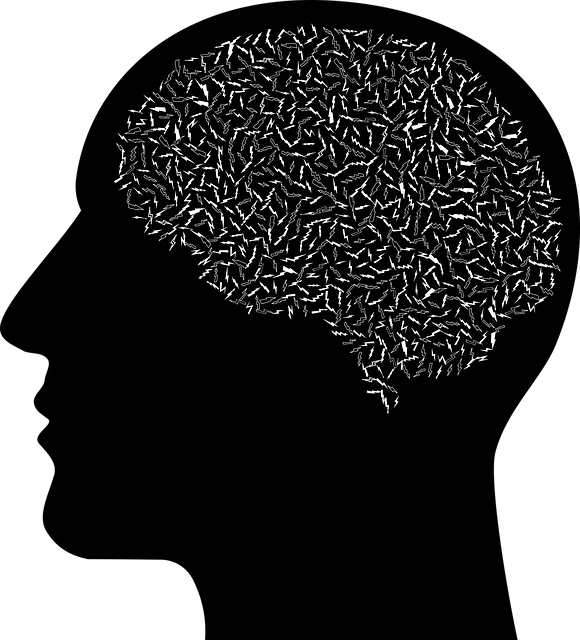Boulder Kaiser Permanente offers a unique, holistic approach to mental health treatment focusing on Resilience, Flexibility, and Mastery (RFM). Combining evidence-based practices like cognitive reframing, mindfulness, exercise, and cultural sensitivity, their programs empower individuals to build emotional intelligence and navigate challenges effectively. The Boulder Kaiser Permanente mental health facility's Resilient Fitness Method (RFM) has shown significant improvements in patient outcomes, stress reduction, and overall well-being.
“In today’s fast-paced world, resilience is a vital tool for mental well-being. This article explores RFM (Resilience, Flexibility, and Mastery), a powerful framework for enhancing mental health, especially in stressful environments. We delve into Boulder Kaiser Permanente’s innovative approach to resilience building, highlighting their success in fostering robust mental health among professionals. Through a comprehensive guide, we discuss the role of exercise in boosting resilience, offering practical insights on designing effective training programs. Real-world applications from this leading mental health facility provide inspiring success stories.”
- Understanding RFM: An Overview for Mental Health Professionals
- Boulder Kaiser Permanente's Approach to Resilience Building
- The Role of Exercise in Enhancing Mental Well-being
- Designing Effective Resilience Training Programs
- Real-World Applications: Success Stories from the Facility
Understanding RFM: An Overview for Mental Health Professionals

At Boulder Kaiser Permanente mental health facility, understanding RFM (Resilience, Flexibility, and Mastery) is paramount for fostering effective therapy and enhancing patient outcomes. This framework recognizes that building resilience isn’t just about enduring stress; it’s about thriving despite challenges. By focusing on these three pillars, professionals can help individuals develop a deeper sense of confidence and emotional intelligence, crucial tools in navigating life’s ups and downs.
RFM exercises aren’t just theoretical; they empower patients with practical Stress Reduction Methods tailored to their unique experiences. Whether through cognitive reframing, mindfulness practices, or goal-setting strategies, these techniques cultivate an environment where individuals can grow, adapt, and ultimately, lead more fulfilling lives. This holistic approach, embraced by the Boulder Kaiser Permanente team, is transforming the way mental health care is delivered, focusing on long-term well-being rather than merely treating symptoms.
Boulder Kaiser Permanente's Approach to Resilience Building

Boulder Kaiser Permanente, a renowned mental health facility, has pioneered an innovative approach to resilience building, prioritizing holistic well-being for its patients. Their strategy involves a multifaceted approach that goes beyond traditional therapy. They encourage self-care practices tailored to individual needs, empowering patients with tools to navigate life’s challenges. By integrating mindfulness meditation into daily routines, they teach individuals to cultivate inner calm and emotional stability.
This mental health facility also recognizes the significance of cultural sensitivity in their practice. They acknowledge that resilience is influenced by diverse cultural backgrounds and beliefs. Therefore, Boulder Kaiser Permanente fosters an inclusive environment, ensuring every patient receives care that respects and incorporates their unique cultural context, thereby enhancing the effectiveness of their resilience-building exercises.
The Role of Exercise in Enhancing Mental Well-being

Exercise plays a pivotal role in enhancing mental well-being, especially for individuals seeking support at a mental health facility like Boulder Kaiser Permanente. Beyond physical benefits, regular activity triggers the release of endorphins, often referred to as ‘feel-good’ hormones, which can significantly improve mood and reduce symptoms of depression and anxiety. The structured environment and camaraderie found in group fitness classes or team sports can foster a sense of belonging, combat feelings of isolation, and promote social connections—crucial components in the emotional well-being promotion techniques employed by mental health professionals.
For healthcare providers at facilities like Boulder Kaiser Permanente, integrating exercise into their self-care routines serves as an effective burnout prevention strategy. Engaging in regular physical activity can help manage stress levels, improve resilience, and enhance overall emotional well-being. Moreover, incorporating empathy building strategies through group exercises can create a supportive community, where professionals learn from each other’s experiences, fostering a culture of care and understanding—a key aspect in maintaining optimal mental health within the healthcare workforce.
Designing Effective Resilience Training Programs

Designing Effective Resilience Training Programs at Boulder Kaiser Permanente mental health facility involves tailoring interventions to meet diverse needs. The program should incorporate evidence-based practices such as Coping Skills Development and Trauma Support Services, ensuring a holistic approach that addresses both emotional and practical aspects of resilience.
Incorporating the Mind Over Matter Principles, these programs can empower individuals with strategies to manage stress, cultivate positive thinking, and build mental fortitude. By fostering a safe and supportive environment, the facility can encourage participants to explore their emotions, develop coping mechanisms, and enhance their overall well-being. This tailored approach not only prepares individuals for challenges but also equips them with tools to navigate life’s complexities effectively.
Real-World Applications: Success Stories from the Facility

The Boulder Kaiser Permanente mental health facility has been at the forefront of integrating Resilient Fitness Method (RFM) exercises into their treatment programs, reaping significant benefits for patients and staff alike. This innovative approach has shown remarkable success in fostering emotional regulation and promoting positive thinking among individuals dealing with various mental health challenges.
Through RFM, the facility offers a unique blend of physical activity, mindfulness techniques, and social connection, creating an empowering environment. Success stories from Boulder Kaiser Permanente highlight reduced symptoms of anxiety and depression, improved coping mechanisms, and enhanced overall well-being. The program’s holistic nature not only aids in mental illness stigma reduction efforts but also empowers individuals to build resilience, a crucial asset for navigating life’s challenges.
Resilience, a key component of overall well-being, is increasingly recognized as an essential skill for individuals to navigate life’s challenges. This article has explored the power of RFM (Resilience, Flexibility, and Mastery) in fostering mental resilience, particularly within the context of Boulder Kaiser Permanente’s innovative approach to mental health care. By integrating exercise as a therapeutic tool, the facility demonstrates that physical activity can significantly enhance mental well-being. The success stories shared highlight the effectiveness of tailored resilience training programs, offering valuable insights for mental health professionals seeking to empower individuals to build resilience and thrive in various settings, including Boulder Kaiser Permanente’s esteemed mental health facility.






